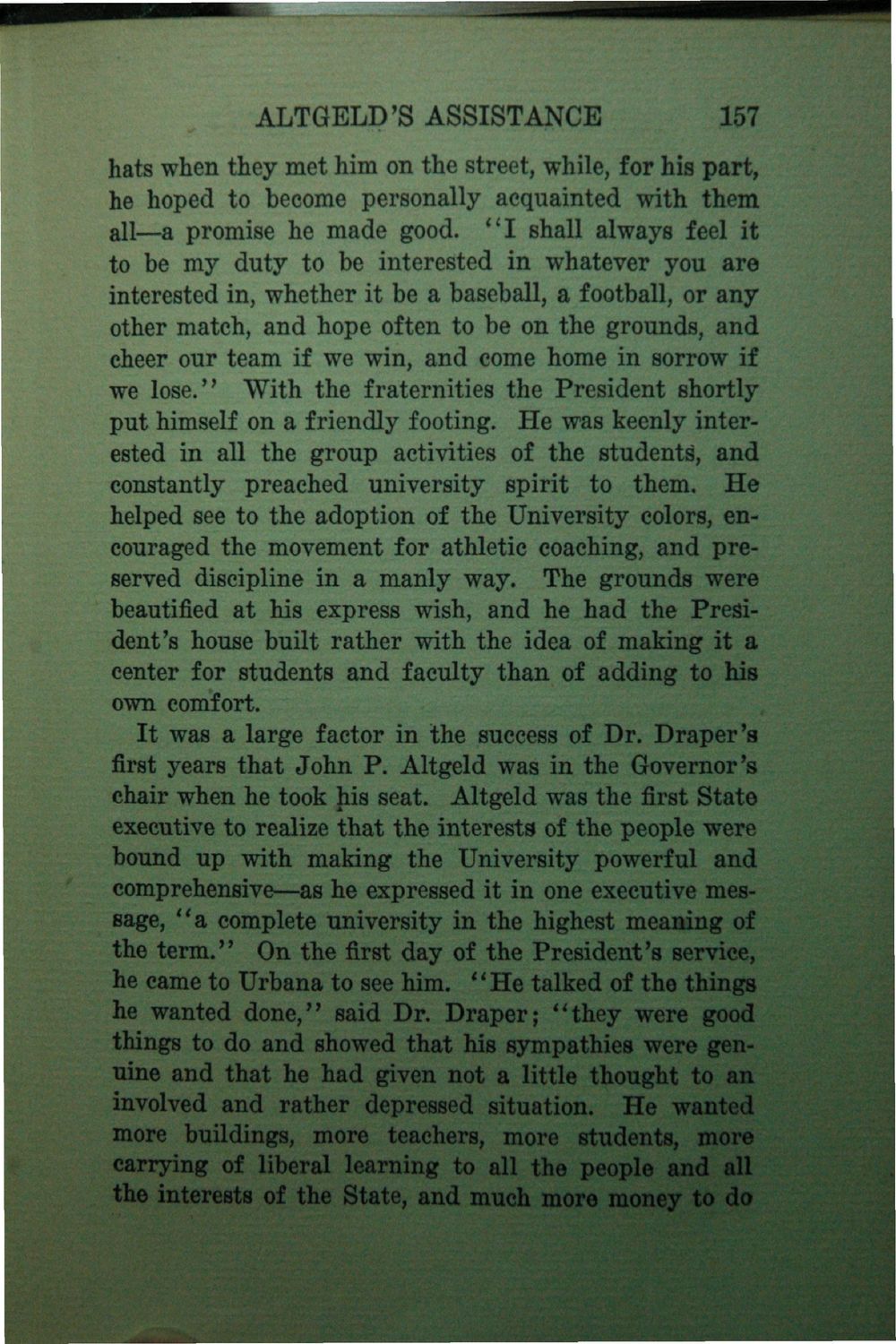| |
| |
Caption: Book - History of the University (Nevins)
This is a reduced-resolution page image for fast online browsing.

EXTRACTED TEXT FROM PAGE:
ALTGELD'S ASSISTANCE 157 hats when they met him on the street, while, for his part, he hoped to become personally acquainted with them all—a promise he made good. " I shall always feel it to be my duty to be interested in whatever you are interested in, whether it be a baseball, a football, or any other match, and hope often to be on the grounds, and cheer our team if we win, and come home in sorrow if we lose.,, "With the fraternities the President shortly put himself on a friendly footing. He was keenly interested in all the group activities of the students, and constantly preached university spirit to them. He helped see to the adoption of the University colors, encouraged the movement for athletic coaching, and preserved discipline in a manly way. The grounds were beautified at his express wish, and he had the President's house built rather with the idea of making it a center for students and faculty than of adding to his own comfort. It was a large factor in the success of Dr. Draper's first years that John P. Altgeld was in the Governor's chair when he took Jiis seat. Altgeld was the first State executive to realize that the interests of the people were bound up with making the University powerful and comprehensive—as he expressed it in one executive message, "a complete university in the highest mealing of the term." On the first day of the President's service, he came to Urbana to see him. "He talked of the things he wanted done," said Dr. Draper; "they were good things to do and showed that his sympathies were genuine and that he had given not a little thought to an involved and rather depressed situation. He wanted more buildings, more teachers, more students, more carrying of liberal learning to all the people and all the interests of the State, and much more money to do
| |